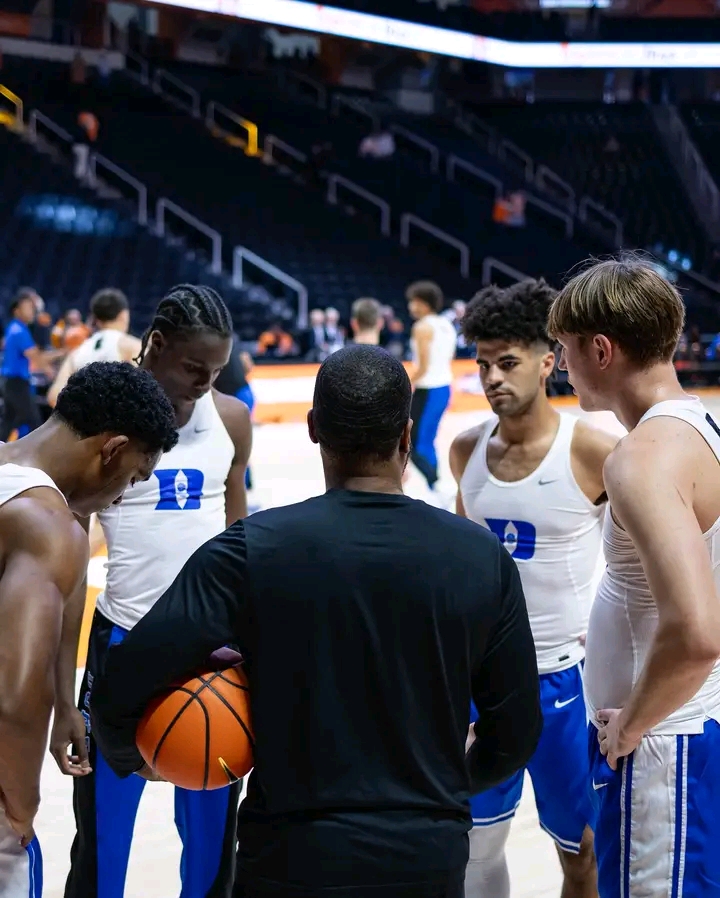After Duke’s emotional win over Tennessee, most teams would’ve taken a moment to breathe — but not the Blue Devils. Less than 24 hours later, Jon Scheyer had his squad back on the floor, and what unfolded inside Duke’s practice facility said everything about where this team’s mindset is right now. This wasn’t a victory lap. It was a statement.
From the moment players walked in, there was no music, no celebrating. Scheyer set the tone early — the Tennessee game was over, and the next challenge was already in focus. The drills were sharper, the scrimmages more physical, and the energy in the gym sounded like a team with something to prove. It wasn’t about what they did, but how they did it — with urgency, pride, and a clear sense that the real work was only beginning.
Cameron Boozer, who had completely taken over against the Volunteers with his 24 points, 23 rebounds, and 6 assists, didn’t act like a freshman coming off a breakout performance. He practiced like someone who hadn’t earned anything yet. Every drill, every rotation, every hustle play looked personal. His intensity rubbed off on the rest of the team — proof that his leadership doesn’t just show up under the lights, but in the grind.
Meanwhile, Isaiah Evans, coming off his own 22-point game, carried himself with the same edge. He attacked every rep with confidence, forcing defenders to keep up with his pace. Patrick Nongba, who had delivered crucial plays down the stretch against Tennessee, brought that same toughness — battling on the boards and setting the tone physically. The chemistry between those three in practice looked more like a veteran core than a mix of freshmen and underclassmen.
Then came the twist. Instead of wrapping up with shooting drills or walkthroughs, Scheyer blew his whistle and sent everyone to the baseline. What followed wasn’t just conditioning — it was a challenge. Sprint after sprint, the message grew clearer: the Tennessee win meant nothing if the effort stopped there. Scheyer was reminding them that standards at Duke aren’t built on moments — they’re built on consistency.
By the end, the gym was silent. Players were exhausted, dripping sweat, yet no one complained. In fact, the quiet carried a different tone — focus, not fatigue. You could see it in the way Boozer leaned on a wall catching his breath, in the way Evans nodded to teammates between reps, in how Nongba walked off the floor ready for more.
That’s what makes this group different. The day after a statement win, they didn’t celebrate it — they worked harder. For Duke, that’s not punishment. It’s preparation.
And if this is what practice looks like after an emotional win, the rest of college basketball might have a serious problem when Duke finally hits its stride.

